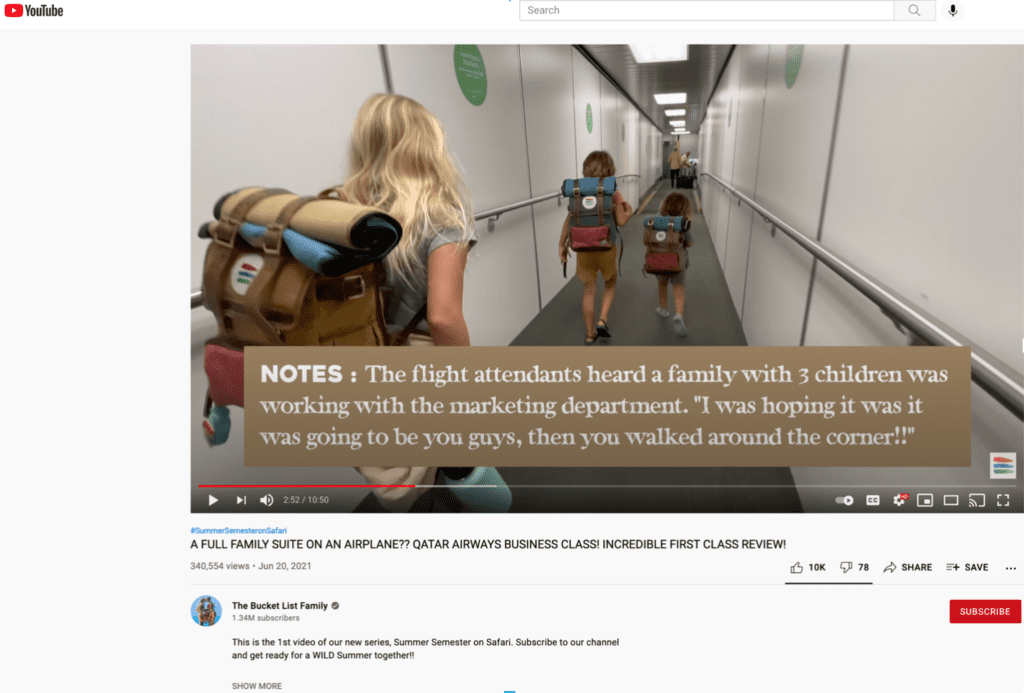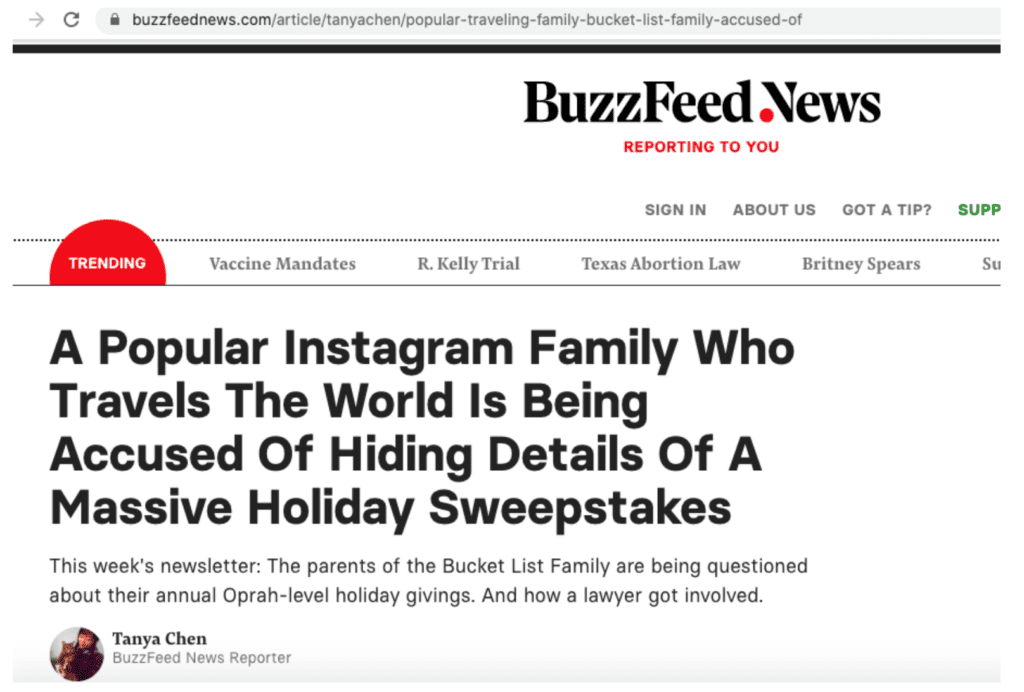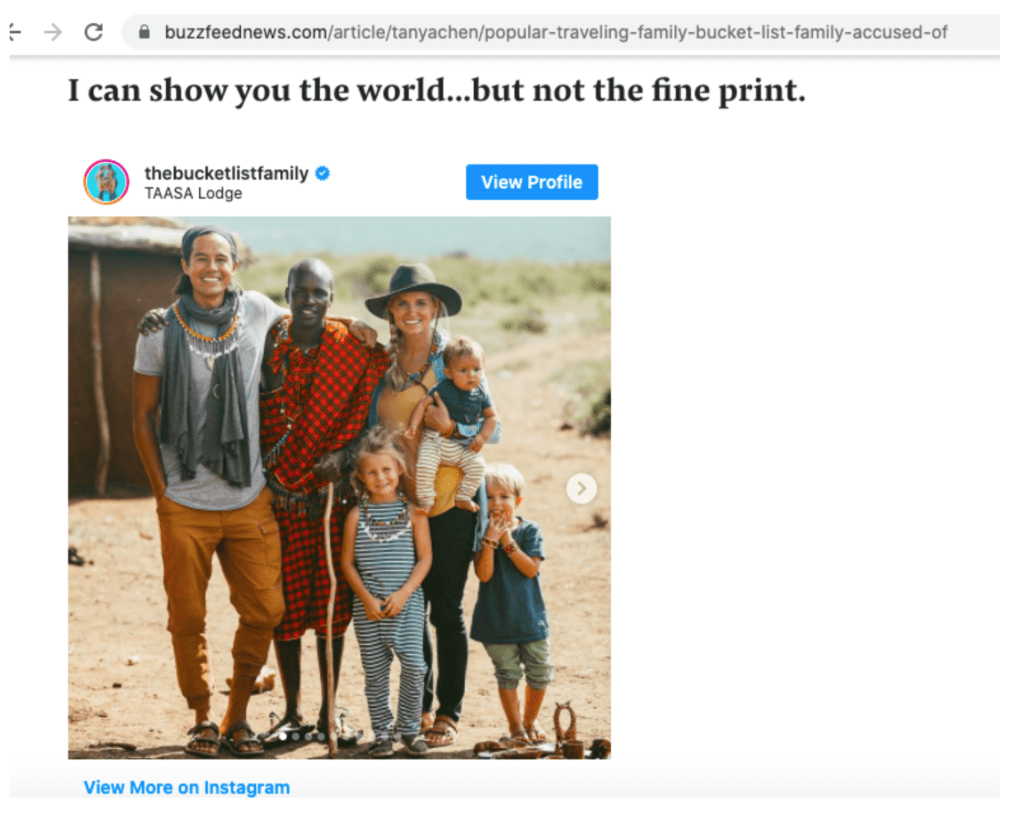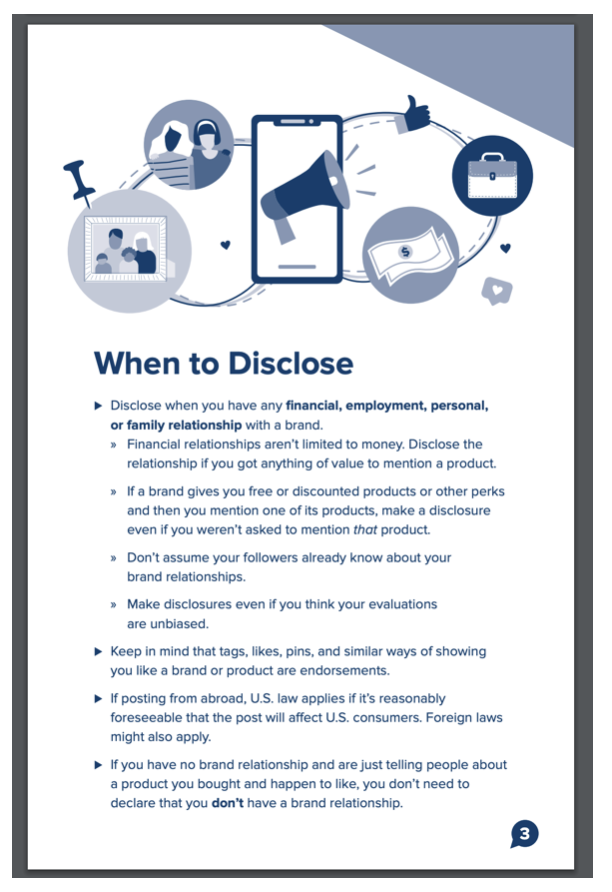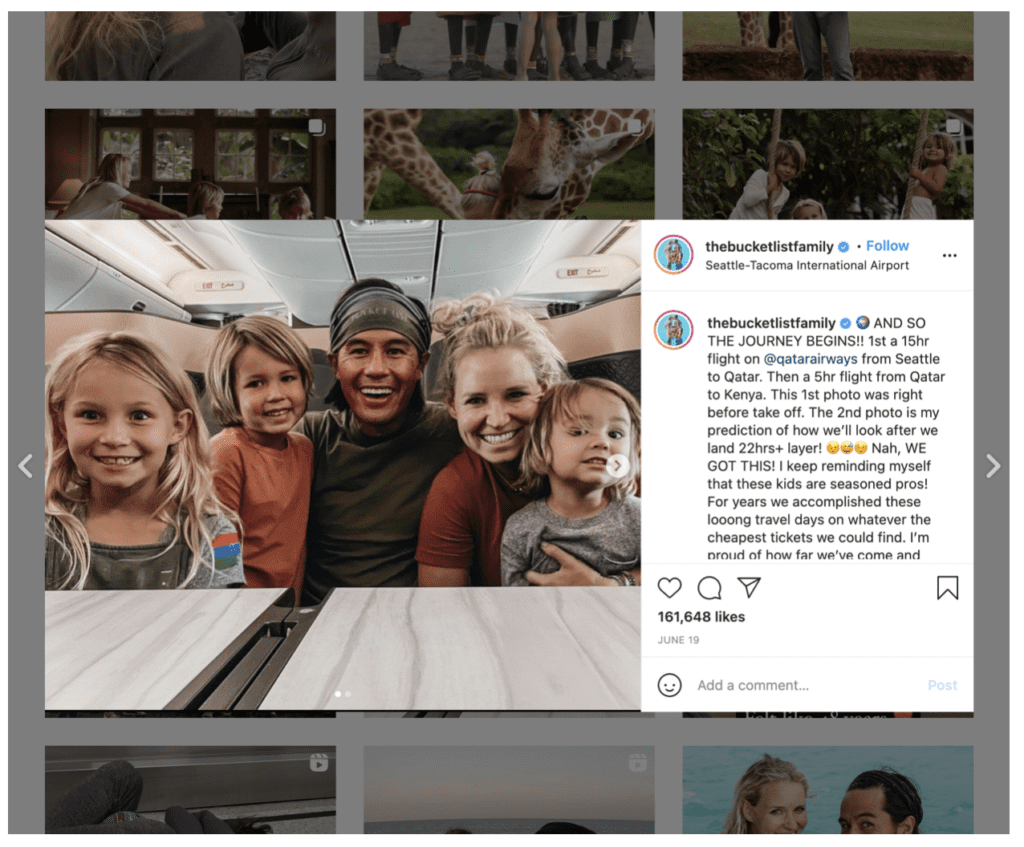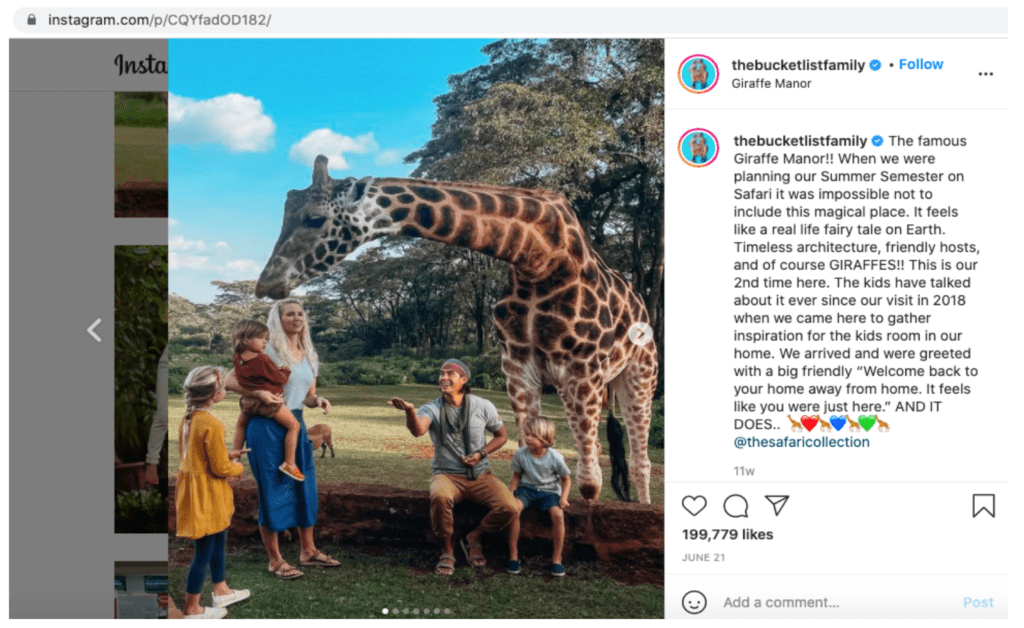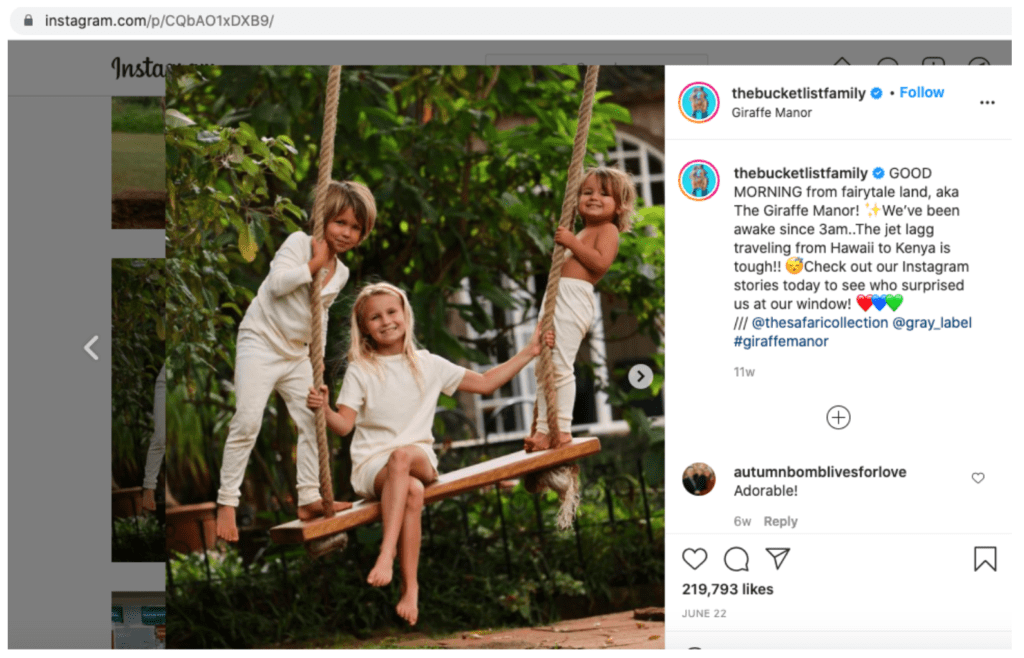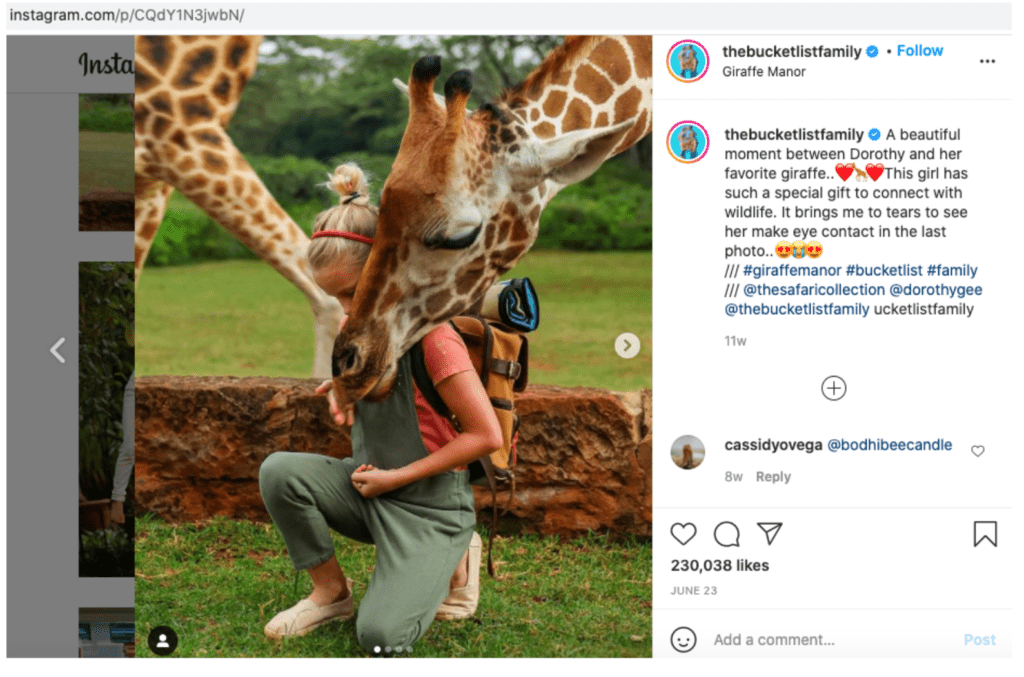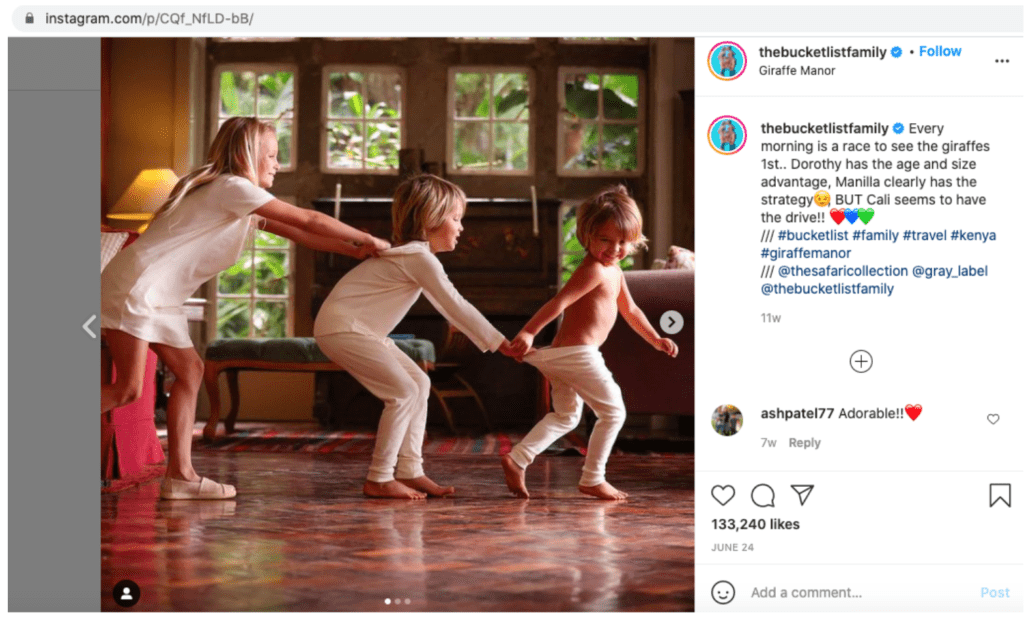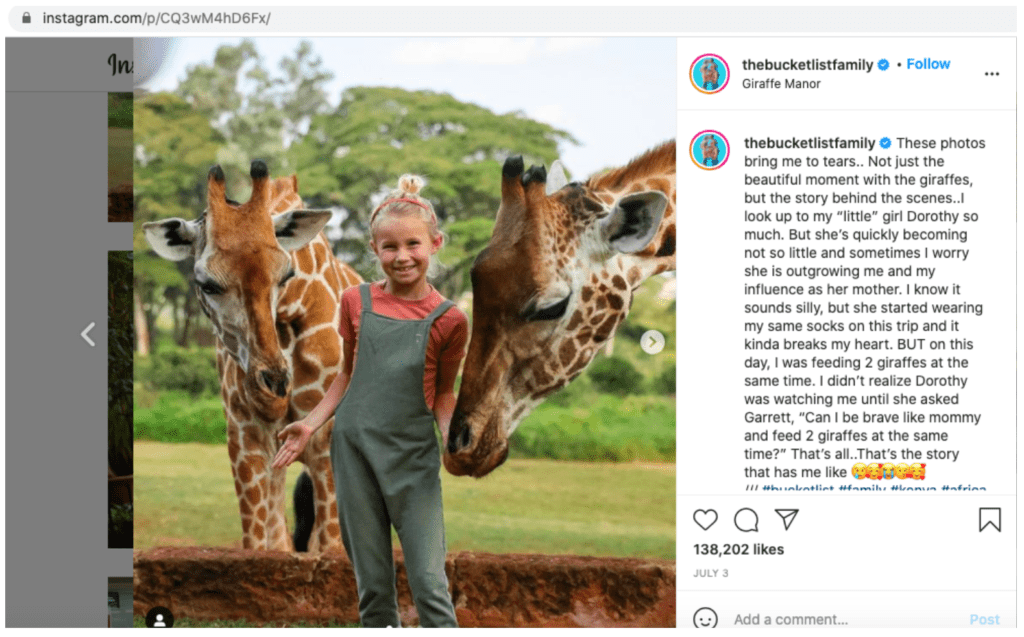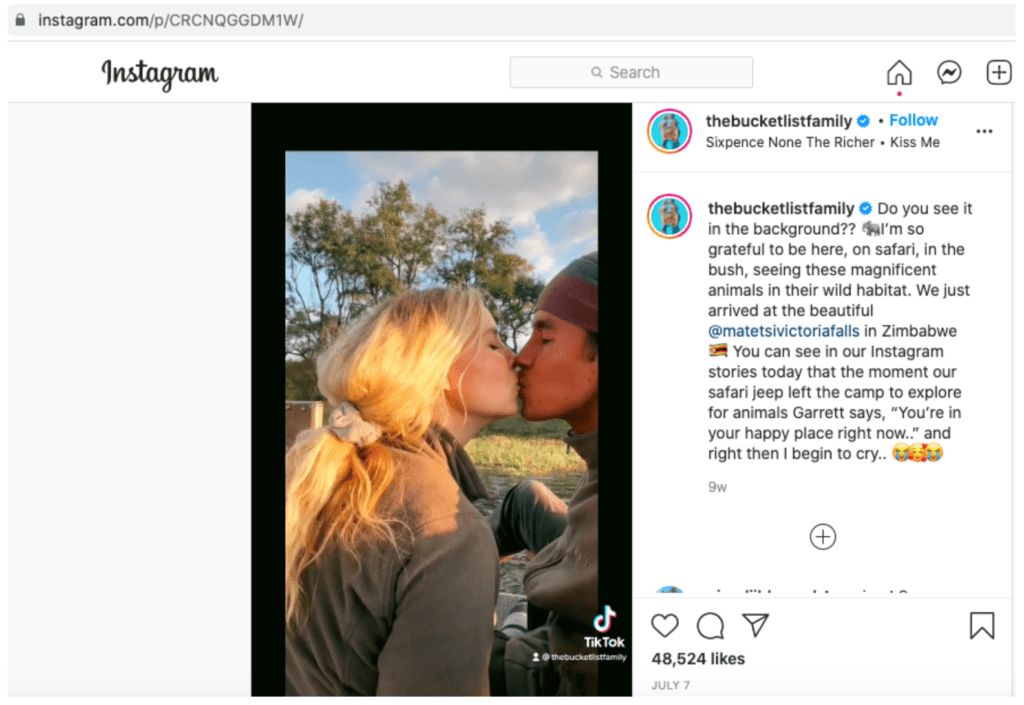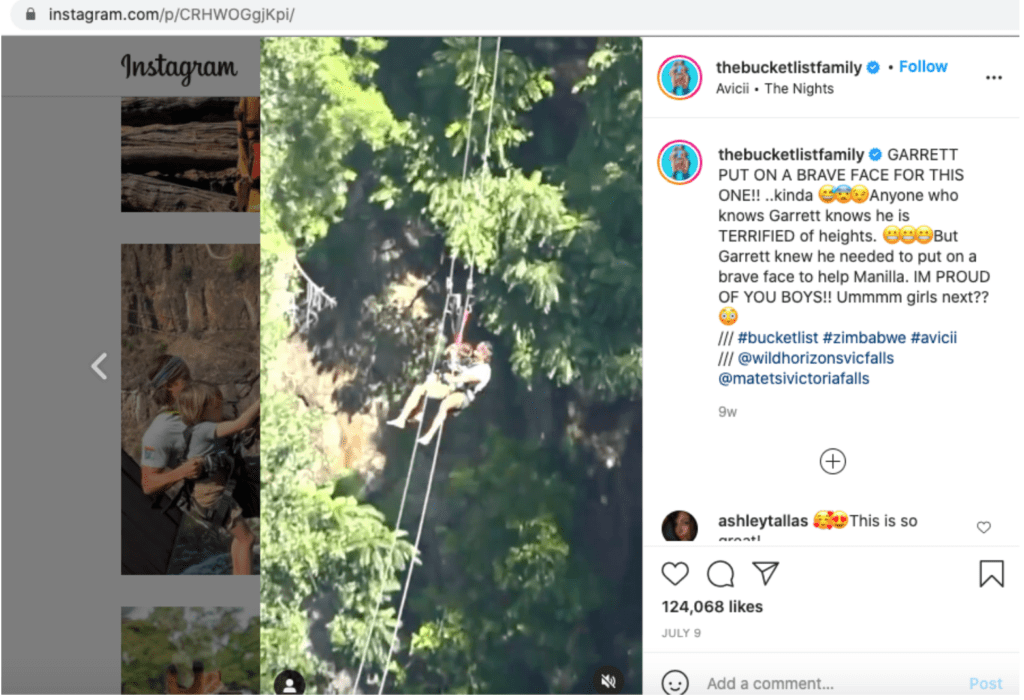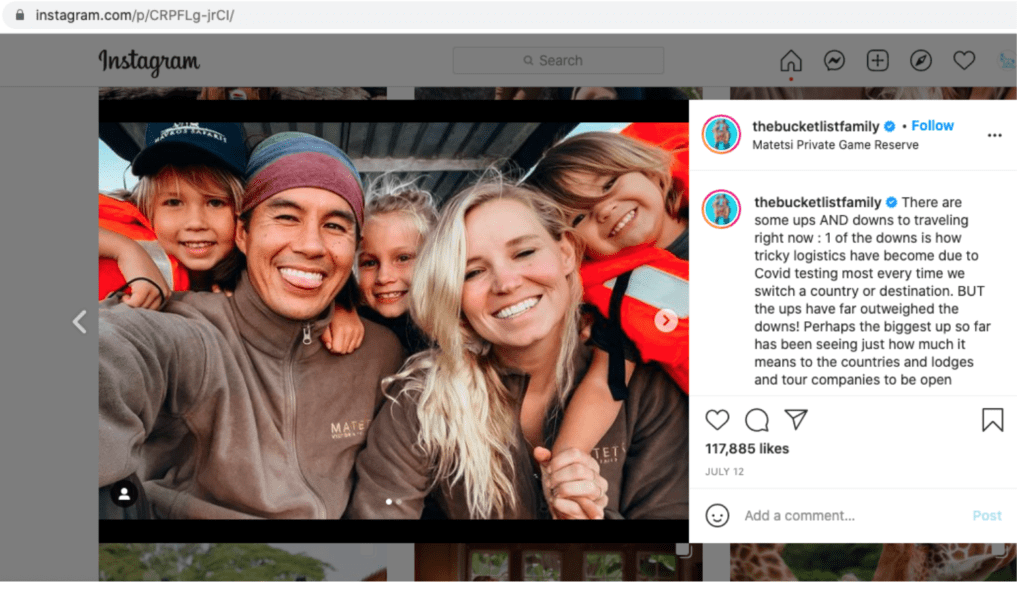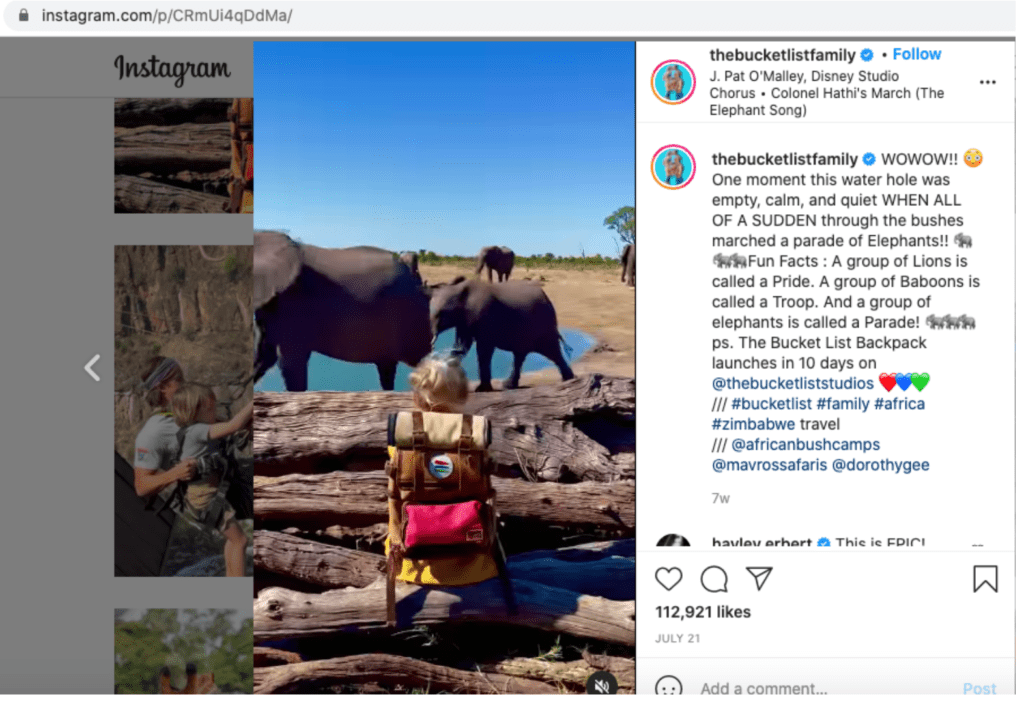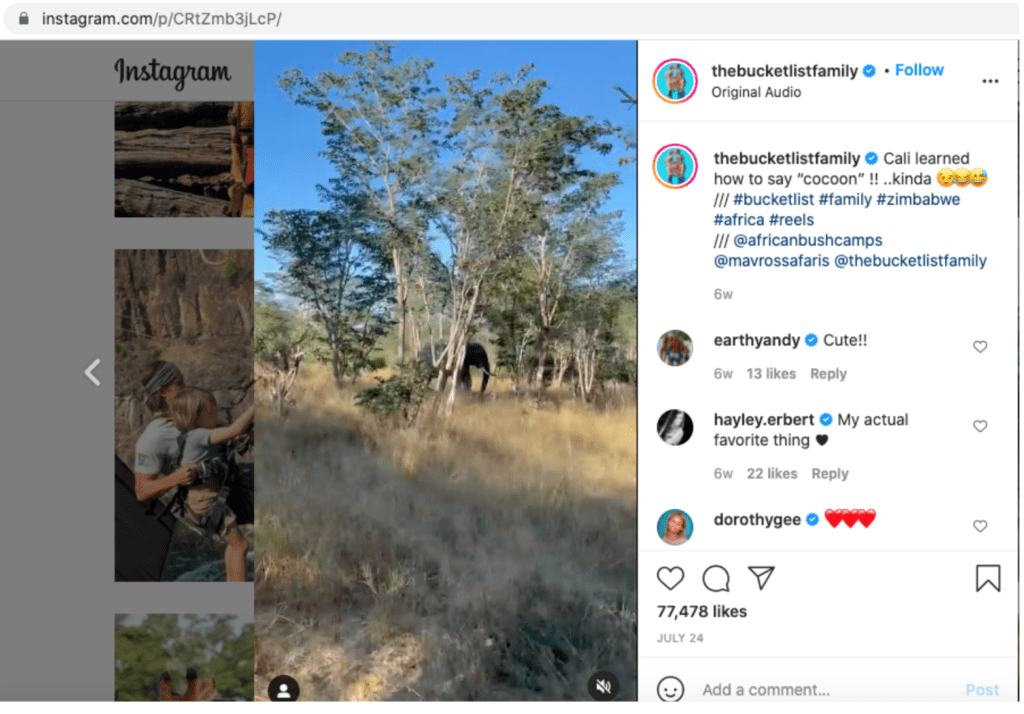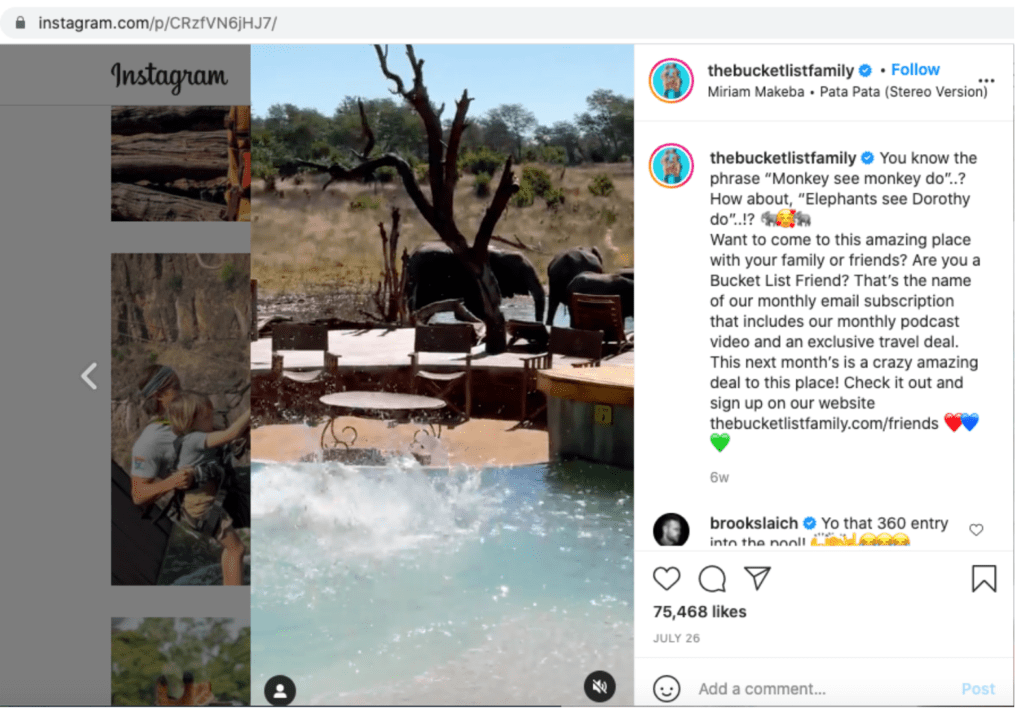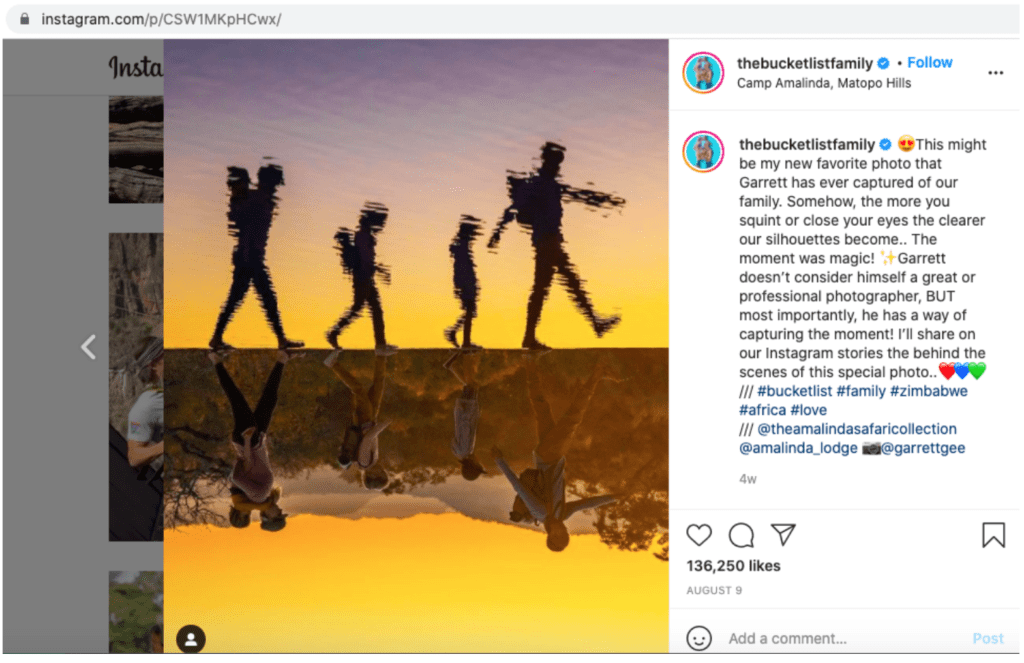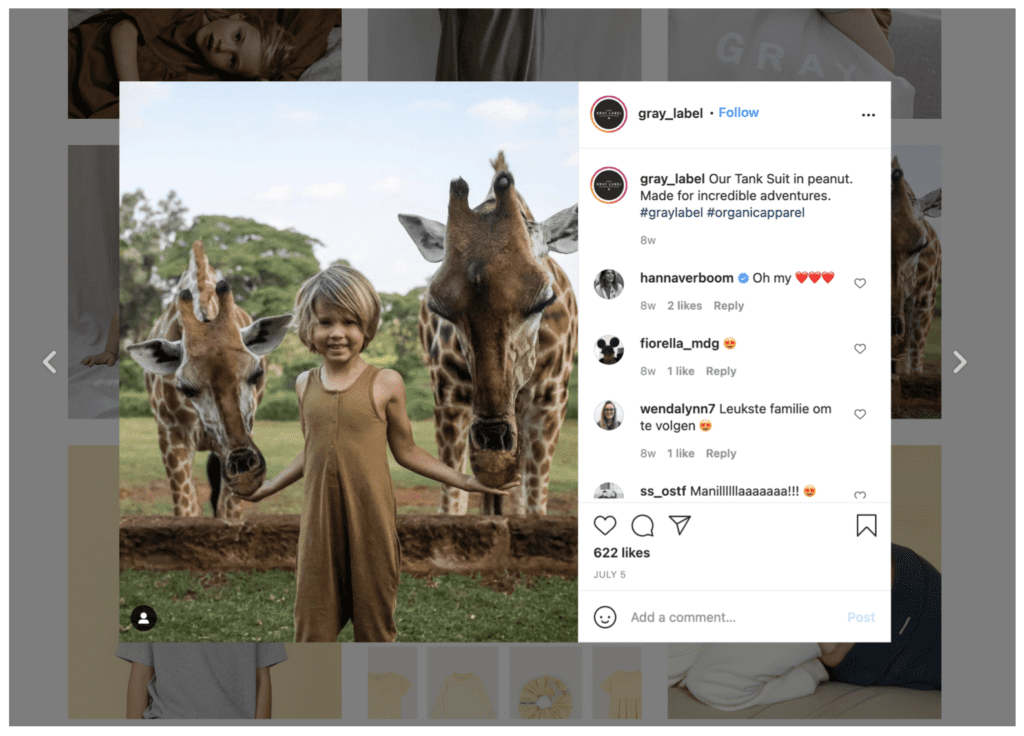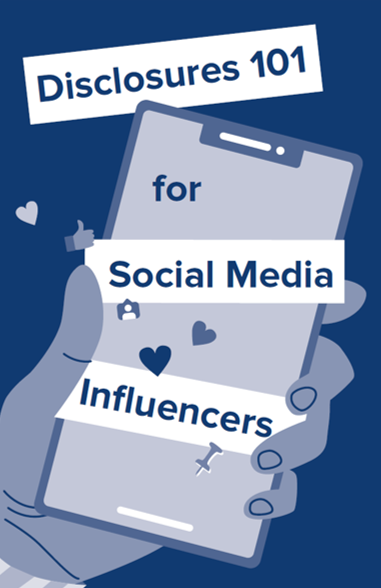Undisclosed advertising is a growing problem in social media
Paid influencers are a form of advertising. Everything that paid influencers do or wear can be monetized. And it is. Yes, there are FTC advertising rules. The enforcement however is non-existent.
The Bucket List Family (@thebucketlistfamily) has 2.6 million followers on Instagram and 1.34 million followers on YouTube. If you are not one of the millions watching their content, the summary is that The Gee family is a photogenic American family of five. Dad Garrett Gee allegedly sold an app to Snapchat for $54 million in 2015. Now the family travels the world documenting their travels on social media. They are likely the most followed family of travel influencers in the world.
The Gees have a goal of becoming famous influencers — paid influencers.
With $54 million dollars in the bank and a goal of becoming famous influencers, the Gees seemed to many of their followers to be doing life right. What they were not doing, however, is using any of that $54 million to look into how to legally promote a product on these social media platforms, consulting with an attorney before being paid to promote products or run giveaways, or even just reading some basic articles on FTC influencing compliance to make sure they followed all applicable state and federal law.
The Gee family ran their own sweepstakes
The Gee family’s lack of regard for proper disclosure has been pointed out before. In December 2019, this family of influencers got in hot water over not properly disclosing the details of holiday sweepstakes. An intellectual property and contracts lawyer active on Instagram, Paige Griffith (@thelegalpaige), realized that the Gee family was not properly disclosing the terms of the sweepstakes. Instagram has its own rules for how sweepstakes must be disclosed, but more importantly, the family should have consulted with existing laws.
Giveaways are highly regulated. There are three different types – sweepstakes (prize by chance), contest (skill needed to enter – ex: best photo contest), or lottery (which consists of something from the participant, often money, chance and a prize). People running their own lotteries are illegal in many states and so on Instagram the two options available to influencers are contests or a sweepstakes. The details of the prize, the value of the prize, how many people will win and when the sweepstakes will be determined should be included in the post. The family did not follow stated laws regarding running a sweepstake and they were called out on Instagram by Griffith. The Gee family responded by blocking the lawyer from seeing their posts on Instagram and the story was reported on BuzzFeed.
Though this family’s illegal disclosure was politely pointed out on Instagram by Paige Griffith and subsequently covered by BuzzFeed, there could be much more dire consequences of their improper actions in the future.
The Gees do not seem to have learned their lesson.
Travelers United is disappointed that a family with incredible resources to seek help in ensuring their posts complied with Federal Trade Commission paid influencers guidance is clearly choosing not to do so in favor of their own personal profit. Gaining followers is incredibly hard work. The message the Gees send to travel influencers just getting started is that there are no consequences to violating the law in order to appeal to a brand. Travelers United, like the FTC, believes that influencers who are being paid to post on behalf of a hotel, an airline or a luxury travel company should clearly state so in their posts. Travelers looking for inspiration cannot make an informed choice if those posting the content do not let it be known which opinions they are paid to have and what is organic content.
The FTC has social media guidance that must be followed
The Federal Trade Commission (FTC) is responsible for enforcing policy around disclosures on social media. So far they have not yet acted against an influencer, though they have gone after a few brands for improper disclosure in their influencer marketing.
The FTC is not the only one influencers should be watching. State law can also apply. The FTC came out with new guidance in 2019 that emphasized the need for disclosure of material connections. The guidance stressed the requirement that influencers disclose any material connection to a brand. How should it be disclosed?
Above is the exact guidance from the Federal Trade Commission. Use #Ad or #sponsored as the first words in a post – not buried at the end of a paragraph’s long post. If an influencer got an item for free, such as a suitcase, but did not receive any money itself, the influencer still must state that they received the item for free clearly in their post. If an influencer received a free hotel stay and then posts about that hotel, that must be clearly mentioned in the post.
The Gee family’s Instagram account ignores the FTC’s guidance
The Bucket List Family posted the following on Instagram on June 19, 2021:
The text below reads: “AND SO THE JOURNEY BEGINS!! 1st a 15hr flight on @qatarairways from Seattle to Qatar. Then a 5hr flight from Qatar to Kenya. This 1st photo was right before take-off. The 2nd photo is my prediction of how we’ll look after we land 22hrs+ later! Nah, WE GOT THIS! I keep reminding myself that these kids are seasoned pros! For years we accomplished these looong travel days on whatever the cheapest tickets we could find. I’m proud of how far we’ve come and sooo grateful to be working with #qatarairways and showing off their new FULL FAMILY seating!!?!! For reals?!! They call it the Qsuite and it’s my new favorite way to travel. Will show you more of it in our Instagram stories today and our YouTube video tomorrow!!”
The family does not note that this likely is a paid partnership.
There are two spots where the Gees could have indicated this, but chose not to. One, they should have noted this in the disclosure link at the top, separate from the text, that notes this is a paid partnership with Qatar Airways. Second, they should have noted clearly at the beginning of the text that this is an advertisement for Qatar Airways. Stating that they are “Working with #qatarairways” towards the bottom of a text-filled post is nowhere near proper disclosure.
Influencers should provide upfront disclosures
For this post to be legally compliant, the fact that it is an advertisement should be the first words of the content. If the family actually wanted to follow FTC guidance, they could have written something like: “#Advertisement | 1st a 15hr flight on @qatarairways…”
The Gee family’s lack of disclosures certainly does not end here. Their next post on June 21, 2021, promotes a luxury hotel in Kenya, The Giraffe Manor.
The text reads: “The famous Giraffe Manor!! When we were planning our Summer semester on Safari it was impossible not to include this magical place. It feels like a real-life fairy tale on Earth. Timeless architecture, friendly hosts, and of course GIRAFFES!! This is our 2nd time here. The kids have talked about it ever since our visit in 2018 when we came here to gather inspiration for the kids’ room in our home. We arrived and were greeted with a big friendly “Welcome back to your home away from home. It feels like you were just here.” AND IT DOES. @thesafaricollection.”
Again, no disclosure. Is this an advertisement for The Giraffe Manor? Or is it an advertisement for The Safari Collection? Perhaps both? Or were the Gees not paid directly for this post rather gifted a stay at this luxury hotel and told to promote the hotel to their 2.6 million Instagram followers? Without disclosures, the viewer has no idea this is likely a paid advertisement.
Advertisements such as these are incredibly deceptive without disclosures.
The Gees kept up with their blatant disregard of the FTC’s guidance with their post the very next day on June 22, 2021.
Here they promote @thesafaircollection, @gray_label and #giraffemanor but they do not disclose if they are being paid to promote these brands, which they most likely are being paid very handsomely to do. CNBC reported that an influencer with a million followers can potentially make $250,000 per post from brands.
The Gees have well over a million followers, yet they are not disclosing when they are being paid and when the content is actually organic content of their unpaid-for thoughts. It is likely that big money is being exchanged here without any regard for the law.
The Gees continue to post photos on Instagram throughout the summer of 2021 without any disclosures. Here are some more examples of their posts over the summer.
The above post from June 23, 2021, finds Giraffe Manor tagged for location. Giraffe Manor is hashtaged and the Safari Collection is tagged as well. They are also all tagged in the photo. There is no disclosure for paid influencers on any of these brands.
Are these Instagram posts a of advertising? Yes.
The above Instagram dates as June 24, 2021. The Gee family tags Safari Collection and Gray Label in the text of the post and in the photo. However, no advertising relationship to The Safari Collection or Gray Label can be found.
Again, no disclosures
This long Instagram post from July 3, 2021, tags The Safari Collection in both the text and the photo of the post. There are no disclosures.
This Instagram post from July 7, 2021, tags the Matetsi Victoria Falls in Zimbabwe. The Matetsi Victoria Falls is a luxury resort hotel in Zimbabwe. There is no disclosure of the Gee Family’s financial relationship to the resort.
This post is from July 9, 2021. The Gee family tags Wild Horizons Victoria Falls, a travel company. Also tagged is Matetsi Victoria Falls, a luxury resort in Victoria Falls, Zimbabwe. There are no disclosures of any material connections.
In this Instagram post from July 12, 2021, the Matetsi Victoria Falls is tagged in the text and in the photo. Both parents, Garrett and Jessica Gee, are wearing jackets that clearly state Matetsi Victoria Falls. There are no paid influencers disclosures.
Are the Gees receiving compensation from these travel companies?
This Instagram post from July 21, 2021, has African Bush Camps and Mavros Safaris tagged. No disclosure to these companies is mentioned.
This post from July 24, 2021, appears to promote African Bush Camps and Mavros Safaris, which are tagged. There are no suggestions of undisclosed advertising.
This Instagram Reel is from July 26, 2021. It promotes an unspecified travel deal in The Bucket List Family’s email subscription list to “this place.” It is likely the hotel that they are staying at, the Matetsi Victoria Falls. There are no disclosures.
Is cross-promotion legal? Only if it is disclosed.
This post from August 9, 2021, tags Amalinda Lodge and The Amalinda Safari Collection in the text of the post, in addition to on the photo itself. There is no disclosure.
Not only did the Gee family not mention any financial relationships they have with any of the brands they are promoting to their 2.6 million Instagram followers, but the brands then return the favor by cross-promoting the Gee family (@thebucketlistfamily) on the brand individual page. The Safari Collection’s Instagram promoted @thebucketlist family being at Giraffe Manor in two posts. Again, absolutely no disclosures are included.
The Gray Label is an organic children’s clothing brand based in The Netherlands. And again, a quick look over at The Gray Label’s Instagram shows a photo of Manilla Gee, the youngest member of @thebucketlistfamily, surrounded by giraffes wearing clothes from their company. There is absolutely no disclosure that the Gees are paid influencers on this post.
Advertising seen in the US is subject to US laws.
One may think that a Kenyan luxury resort, a children’s clothing line in the Netherlands or an airline based in Qatar may not care what the laws are in the United States.
However, if these companies advertise in the United States, their advertising is subject to the scrutiny of the FTC. Here, all of these companies, with the help of The Gees (@thebucketlistfamily) are clearly violating FTC guidelines by not disclosing their material connections.
The Gees clearly have the resources and the knowledge to know that they need to follow the law. If the family sold an app for $54 million dollars, the family can afford to hire a lawyer to make sure their content is going up correctly.
Garrett Gee is smart enough to create an app. He probably should be smart enough to know how to use Google search to see if there are any laws about accepting money in exchange for reviews or promotion of a product. There is truly no excuse for this sort of behavior. A family like the Gees is smart and has the resources to make sure they are travel influencing in a legally correct manner.
They likely by this point well know they should be disclosing their material connections to these brands. However, the brands will pay more for organic looking posts. The Gees have clearly decided not to follow the law in favor of personal profit.
Influencing is hard work, but it should be done legally.
Travelers across the world appreciate the hard work that goes into the labor of creating great content. So many of us are stuck at home right now but we can scroll through our Instagram feeds to look at beautiful pictures of travel destinations far away. A travel consumer cannot make an informed decision of where they would like to know without knowing if a post is paid content or if it is a truly organic post. Consumers currently simply do not know what is an advertisement and what is not an advertisement.
The FTC and State AGs have laws and can bring action against influencers.
The Federal Trade Commission is not the only one with guidance regarding paid influencers. State Attorney Generals can also bring action against paid influencers for deceptive advertising. Non-profits, like Travelers United, can act as private attorneys general to enforce the advertising laws of a state. We strongly recommend travel influencers follow the guidance of the Federal Trade Commission and disclose their material connections on all posts. If they choose not to, we may see them in court.
NOTE! Nothing in this post is legal advice.
Featured image: https://todaytesting.com/free-social-media-marketing-free-images/; This file was derived from: Keyboard Close Up.jpg
READ ALSO:
What? You tested positive before your flight back to the U.S.?
Let’s talk effective face masks — stay safe during a pandemic journey

Lauren joined Travelers United in 2015. Founded Kill Resort Fees, the only site devoted to ending hidden hotel resort fees. Armed with an arsenal of frequent flyer miles and some extreme budgeting skills, Lauren traveled around the world through 37 countries. Accomplishments include eating at the world’s largest restaurant in Syria, bungee jumping off the Victoria Falls Bridge on the Zambia/Zimbabwe border, running into Anthony Bourdain at a Mexican restaurant in Cambodia and cage diving with Great White Sharks in South Africa.

